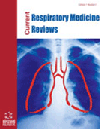-
s Adenoidal Immune Response in the Context of Inflammation and Allergy
- Source: Current Respiratory Medicine Reviews, Volume 15, Issue 3, Sep 2019, p. 231 - 237
-
- 01 Sep 2019
Abstract
The mucosal-associated lymphoid tissues of the upper respiratory tract, including adenoids and palatine tonsils, are considered as the first line of defense against respiratory infections, being important effector organs in both mucosal-type and systemic-type adaptive immunity. They are strategically located for mediating both local and regional immune functions, as they are exposed to antigens from both the inhaled air (allergens and pathogens) and the alimentary tract. Adenoids play a major role in the early and effective immune responses against viral and bacterial upper airway infections, as well as in the development of allergic reactions to respiratory allergens, being influenced by several environmental antigens and pollutants, such as tobacco smoke. In addition, recent studies have focused on new immune-modulating strategies for adenoidal cells as a preventive and therapeutic approach for chronic upper airways inflammation. Herein, we aimed to summarize what is known about the cellular and molecular mechanisms regulating adenoidal immune responses in the context of inflammation and allergy, with particular reference to scientific literature published within the last five years.


